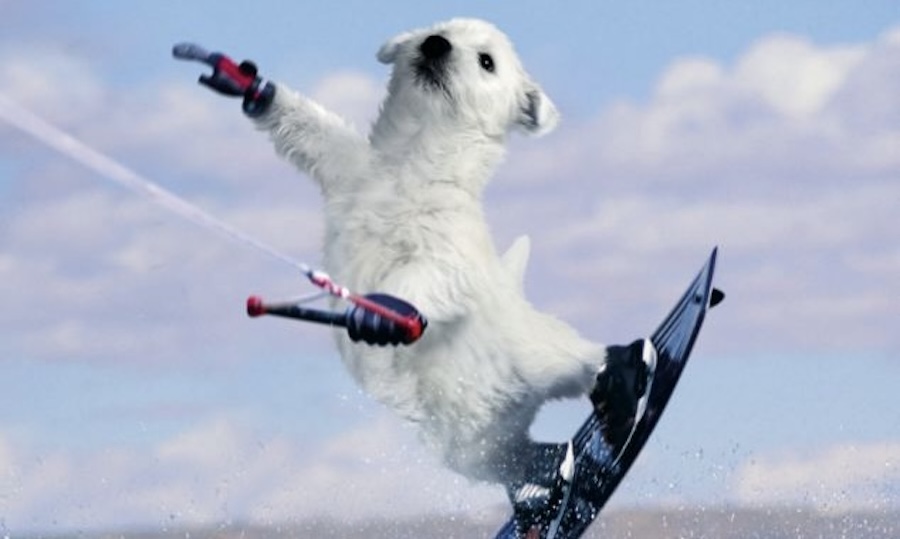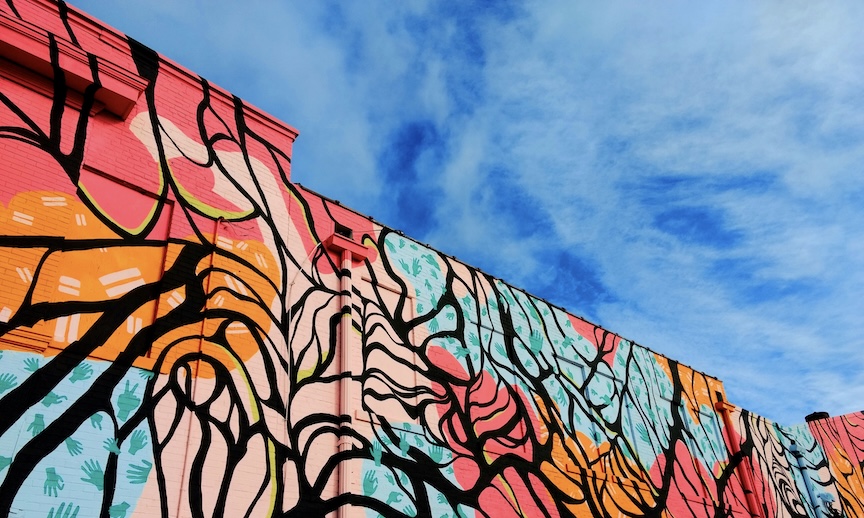JUMP FOR JOY
Our brains are wired to perceive connections and draw significance from a gazillion pieces of sensory input every day. Simply to be able to function through this maelstrom of information, we can’t help but do a whole lot of projecting, assuming, and leaping to conclusions. We’re constantly deciphering a barrage of raw data through the filters of our past experiences and our expectations for the future.
This is one of the very real ways that we create the world we’re living into — we make it mean something and then we behave as if that meaning is true.
It happens whether we’re conscious of it or not. Whether or not we’re aware that we’re filling in the blanks, connecting the dots, and constructing our story pretty much out of whole cloth. Most of the time, for most of us, life tends to occur as if it’s showing up objectively the way it really is.
Either way, conscious or not, we are in fact shaping what actually happens next. So when life is amped-up, intense, and uncertain, like now, we’ve gotta be extra-careful about how we do this. The thing about doing it mindfully, making it up on purpose, is that we’re more likely to create the life that we want.
What I propose is: since it’s inevitable that we leap to conclusions about our lives and what’s in store, let’s do our best to leap to hopeful, inspiring, uplifting ones. Let’s jump for joy.
I’ve been thinking about the old nursery rhyme, “There was an old lady who swallowed a fly…” You know that one. The next line is, “I guess she’ll die.”
That seems like quite a leap, a rather drastic conclusion. Because of this initial, dire supposition — I guess she’ll die — the song’s successive stanzas describe the old lady swallowing larger and larger animals to address the fly problem. It’s silly, and fun to sing, especially the line about the spider, “that wriggled and jiggled and tickled inside her.” But in the final verse, she swallows a horse. Fulfilling the expectation she’d held from the beginning, she dies, of course.
All because of something that really didn’t have to be such a big deal in the first place, and something that could have been stopped or turned around at any point.
Don’t swallow the goat, for Pete’s sake!
She escalated. The old lady assumed the worst, overreacted according to her assumptions, and created the very situation she was hoping to avoid. JUST LIKE WE DO.
(Well, I guess I shouldn’t speak for you. Maybe you always respond with a cool, unflappability; never failing to look on the bright side, to see the opportunity where others see looming disaster. Congratulations, well done, you!)
However, most of us, generally, act a lot more like the old lady in the song.
These days, it feels especially hard not to overreact. The news reads like a doomsday prophesy. We’re feeling divided and our differences seem irreconcilable. We’re hyper-attuned to perceived dangers from multiple directions, and our adaptive fight-flight-freeze mechanism has been on red alert for months, years. Most of us are plumb exhausted.
When we’re stressed-out, as we take in new information, we’re much more likely to filter it through an assumption of ongoing catastrophe. We want to avoid disappointment or being caught unawares. We try to keep ourselves safe. We prepare for the worst…
Alas, this tends to create, inadvertently, the very conditions in which our imagined worst-case scenarios might bloom.
- What if we could calmly take in new information and immediately recognize it all as a mixed bag of good and bad and in-between, wide open to an almost infinite range of interpretations?
- What if we intentionally balanced our impressions and expectations to account for our evolutionary predisposition to assign disproportionate weight to perceived threats? Recognizing and adjusting for our built-in “bad-news bias.”
- What if we practiced reminding ourselves how much we’re making up?
I think we’d probably feel more empowered to make up something different, maybe something wonderful. So let’s look before we leap, set our sights on where we want to land, adjust for resistance, and choose to jump for joyful eventualities.
Honestly, I’m not saying that it’s always going to put us exactly where we want to be — life is going to keep being complicated, after all. But I think at the very least we might avoid some unnecessary, counter-productive, over-compensatory goat-swallowing.
I can’t wait to be with you this Sunday, September 26, 10 am at Maple Street Dance Space. With special musical guest, Dianna Hughes! My talk is also shared online every Sunday evening at BOSQUECSL.ORG. XO, Drew
©2021 Drew Groves




